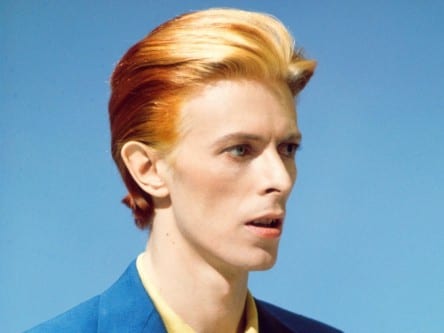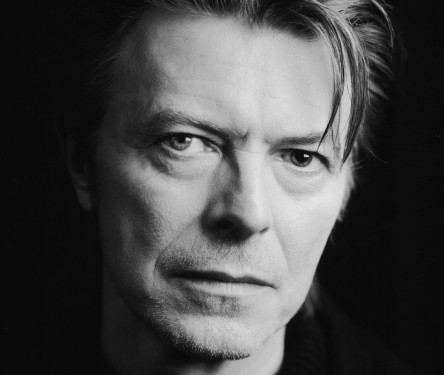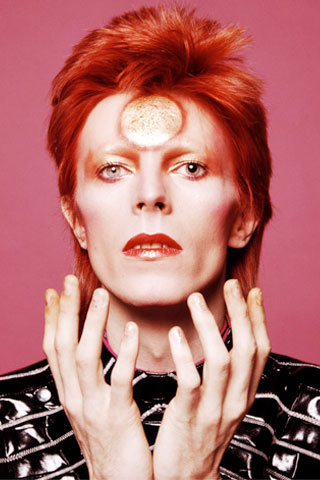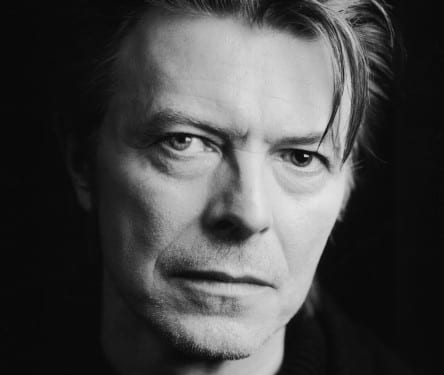
The man who sold the world
I can’t get David Bowie out of my head.
I’ve known he’s been dead less than a day, so it’s fresh. But more than the passing of many past-their-prime celebrities, who exited the stage when ready, something about Bowie’s death at 69 feels abrupt, underhanded, mocking. It’s as if a monarch has died, and the town crier called out, “The king is dead, long live the king!” … even though you know there’s no new king on the horizon, no replacement that can touch the predecessor. David Bowie dying is like acknowledging the death of the 20th century, and the man who created it has left it, left us, in ruins.
You can’t blame him. He did what he could. One reason why Bowie resonates more strongly and clearly than any other artist — to my thinking, he was, along with Eugene O’Neill, Pablo Picasso, Alfred Hitchcock, George Gershwin, Scott Fitzgerald, Coco Chanel and Frank Lloyd Wright, a defining genius — was that he represented more than a career in music. He practically led us through the pop culture generation of the latter half on the 1900s. He made so much possible … including the ability to be openly gay. (More on that later.)
David Bowie’s career began as early as the Beatles and the Rolling Stones, although his path was very different. He was an educated man, who understood culture from Hockney to Elvis, Little Richard to Balenciaga. Whereas the Beatles and Stones hit it big in the early to mid 1960s (the Beatles had actually split up by 1970), it wasn’t until the ’70s that Bowie found his footing as a musician. While certainly at the forefront of the glam rock revolution, unlike his fellow practitioners — the New York Dolls, Elton John, Roxy Music — Bowie could do it bigger and better. It wasn’t a costume for gigs, not just a style he re-created, but a persona that he embodied; he would even change his name as needed (Major Tom, Ziggy Stardust) to conjure new associations. And more so than any other rock contemporaries, Bowie reinvented himself continuously. Queen will forever be an arena rock glam band; they never turned into disco gods, or fashion icons, or film/stage actors, or financial innovators. Bowie did all that.

The man who fell to earth
That is not to say that he did everything equally well. All great artists have failures. Not every doodle by Picasso was museum quality. His acting career never caught on fire, in part because his versatility onscreen was limited and he was difficult to cast. But he wasn’t hemmed in, at least in his own mind. He was a creator, an experimenter. And his refusal to cleave to expectations for what someone needs to do to be “popular” meant that he was, ironically, the inventor of his own culture, which through the force of its brand inevitably infiltrated every aspect of American life. Don’t fool yourself: Stonewall may have been the start of the gay rights movement, but without Bowie, can you imagine it would have gained traction in every corner of society?
In a very real sense, David Bowie made you possible. As much as he was a leader in fashion through his glam era (and beyond), he was also an icon of sexual freedom. Many of his era dressed outrageously and with androgynous looks, but still steered clear of LGBT identification. Bowie didn’t. He was always out front about his bisexuality — remarkable for a pop star in the 1970s. Elton John, by contrast, didn’t officially come out until much later. But his orientation seemed authentic and personal more than a political statement. When, in 1992, Bowie married the model Iman, no one considered it a lavender marriage, that she was somehow his beard. Who wouldn’t want to sleep with David Bowie? For that matter, who wouldn’t want to sleep with Iman, one of the world’s most beautiful women? His sexual power was its fluidity. He didn’t have to be the grand marshal of Pride parades to be a role model … in some ways, he was a better kind of role model, the kind that just does as he pleases and everyone else be damned. It was that commitment to his vision — of his art, of himself — that set him apart from his contemporaries (and, for that matter, virtually every pop music wannabe of the last three decades). One doesn’t think of the chart-topping hits from David Bowie, but from the remarkable catalog of albums and songs that escorted you through a career as diverse as the culture itself.

Ziggy played guitar
He was also a visionary in another important way: as a futurist about pop culture in general. His characters hinted at an otherworldly obsession with the cult of personality. Decades before Lady Gaga envisioned a fame monster, Bowie conceived of a world driven by an unhealthy preoccupation with celebrity. (It’s probably no coincidence that the name of a song off of Gaga’s first album, “Just Dance,” echoes one of Bowie’s, or that she has worked to combine music and fashion in equal measures.) Unlike other artists who explored popularity as an American theme — including Andy Warhol, whom Bowie portrayed in the movie Basquiat — Bowie seemed separate from, and not beholden to, popular culture. He was a critic of it more than Warhol, a bemused alien or god, laughing from Mount Olympus.
You ignored David Bowie at your peril. I confess, when “Let’s Dance” was released in the ’80s, I didn’t fully “get” it. It was only later, with hindsight, that you could realize he prefigured the entire club kid movement by at least half a dozen years. That’s when his genius emerged: even though he was famed for his work in the idiom of pop music, it wasn’t his raison d’etre. He was a leader, not a follower, who affected pop culture in countless particulars. I don’t know that most people will be able to fully grasp the impact he had on their lives until years from now, when we’re finally able to step back and evaluate not only where we were, but where we are, and how we got there. With the perspective of sober reflection, we will plainly see that Ziggy Stardust’s fingerprints were on every page of that history.












